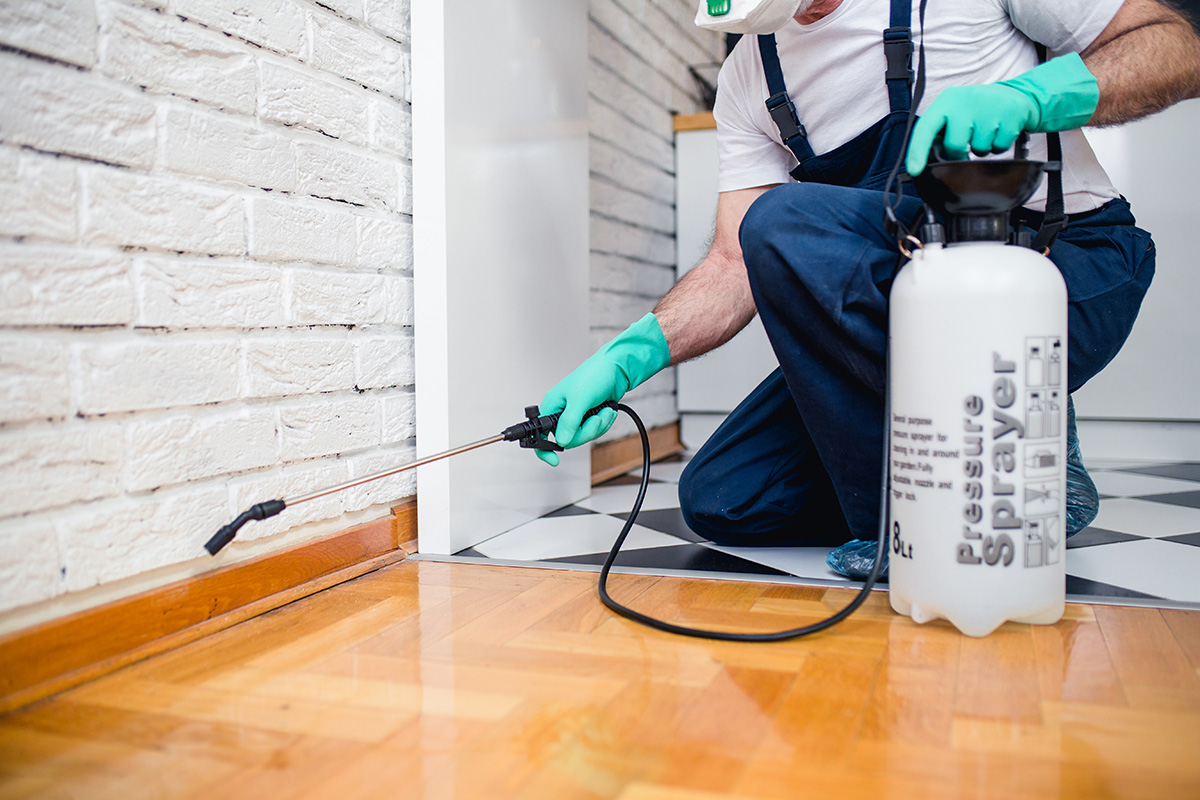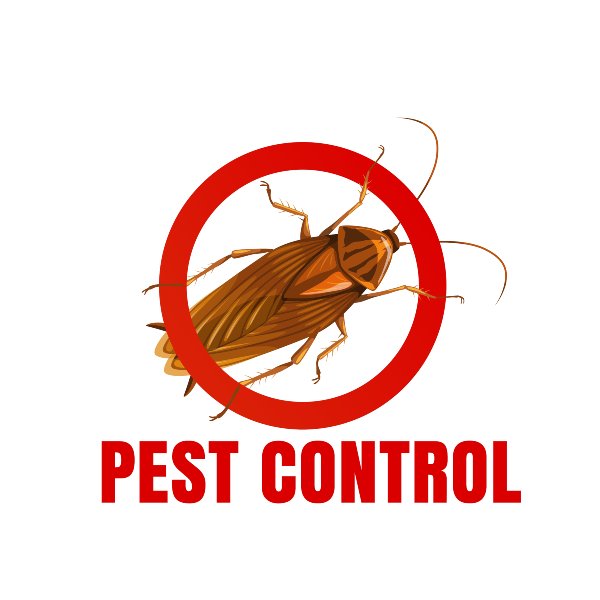A1 Pest Control Portland Bed Bugs - Professional Elimination Provider
A1 Pest Control Portland Bed Bugs - Professional Elimination Provider
Blog Article
Effective Pest Control Providers: An In-Depth Look at Extermination Techniques and Prevention Steps
In the realm of insect control services, the successful administration of infestations needs a thorough technique that incorporates numerous strategies and steps for both eradication and avoidance. From Integrated Insect Monitoring (IPM) techniques that prioritize sustainable remedies to chemical elimination methods designed for targeted elimination, the collection against parasites is vast and diverse. Biological control approaches and physical prevention steps use alternative paths to effectively combating undesirable intruders. However, the secret to a comprehensive parasite control plan lies not just in the methods themselves, however additionally in the thorough specialist examination treatments that precede and educate them. By comprehending the ins and outs of each method and just how they interaction, one can absolutely realize the intricacy and performance of modern bug control solutions.

Integrated Parasite Administration (IPM) Strategies
Integrated Insect Management (IPM) Methods encompass a thorough method to pest control that concentrates on prevention, control, and surveillance techniques to efficiently take care of insect populaces. By integrating numerous strategies, IPM intends to reduce the impact of bugs while likewise decreasing the reliance on chemical pesticides. Prevention exists at the core of IPM, stressing methods like proper cleanliness, upkeep of hygiene, and securing entrance indicate discourage bugs from infesting structures. Surveillance plays a critical duty in IPM by regularly checking and determining bug degrees to determine the ideal treatment limits. Control techniques in IPM prioritize using physical, organic, and social approaches prior to transforming to chemical treatments as a last resource. These approaches consist of presenting natural predators, habitat adjustment, and utilizing trapping gadgets to keep bug populaces in check. On the whole, IPM fosters a sustainable and ecologically conscious approach to pest management, advertising lasting remedies that guard both human wellness and the ecosystem.
Chemical Elimination Techniques
Chemical extermination methods are commonly used in parasite control services to efficiently eliminate pest populaces that position a hazard to human health and wellness and building. These techniques entail making use of various chemical materials specifically created to target and eliminate bugs such as insects, rats, and other undesirable creatures. The application of chemicals, insecticides, rodenticides, and other chemical agents is carefully controlled to make certain optimum effectiveness while lessening threats to humans, animals, and the environment.
Among the vital advantages of chemical elimination techniques is their capacity to supply quick and targeted results, making them particularly valuable in situations of extreme invasions or urgent parasite control needs - portland exterminators a1 for bed bugs. Nonetheless, it is necessary to highlight the relevance of proper handling, application, and disposal of these chemical items to stop unexpected injury
Furthermore, integrated bug monitoring (IPM) strategies often combine chemical extermination strategies with various other techniques such as sanitation, environment alteration, and biological controls to produce a lasting and comprehensive parasite control approach. By incorporating chemical extermination methods deliberately within an IPM framework, pest control services can effectively handle insect populaces while reducing prospective threats to human health and the atmosphere.
Organic Insect Control Approaches
Utilizing natural predators and parasites to manage pest populaces is a sustainable method known as organic insect control. a1 pest control in portland oregon bed bugs. One usual biological control method involves introducing all-natural enemies of the target bug species, such as ladybugs for aphid control or nematodes for termite invasions.
An additional efficient organic control strategy is using microbial pesticides. These are normally occurring bacteria, such as infections, fungi, and bacteria, that particularly target and infect certain parasite species. By making use of these microbial agents, pest populaces can be effectively lowered without damaging useful microorganisms or triggering injury to the atmosphere.
Physical Insect Prevention Measures
Implementing physical insect prevention steps entails making use of barriers and architectural alterations to prevent bugs from infesting a home or getting in (a1 commercial pest control portland). One efficient approach is sealing all prospective entry points such as voids around doors, windows, and energy penetrations. Setting up door moves, screens on windows, and securing fractures in the foundation can assist protect against plague control insects like pests and rats from getting access inside. In addition, preserving a clutter-free and tidy atmosphere is critical as pests are attracted to food resources and concealing places. Consistently inspecting and fixing any type of damaged screens, vents, or roof covering tiles can additionally assist in keeping parasites out.
Another physical prevention action is making use of barriers like fencing to keep larger parasites such as deer or raccoons far from the building. Setting up mesh or wire screens around gardens can secure plants from being bee removal damaged by bugs. Appropriate waste management, including safeguarding wastebasket with tight-fitting covers, is vital in deterring parasites like raccoons, rodents, and insects. By implementing these physical insect prevention measures, homeowner can dramatically lower the risk of insect invasions and the damage they can trigger.
Specialist Insect Inspection Procedures
Performing extensive and systematic bug assessments is a fundamental facet of specialist pest management methods. Expert parasite inspectors are trained to meticulously check out buildings for indicators of infestations, determining pest species, entrance points, and conducive problems. The inspection process generally starts with a comprehensive assessment of both the exterior and interior of the premises. This entails monitoring for insect droppings, chomp marks, nests, and any type of architectural damage that may show bug activity. In addition, examiners might use specialized devices such as dampness meters and borescopes to detect covert infestations within wall surfaces or crawl rooms.

Final Thought
Finally, reliable parasite control services use a range of methods, consisting of Integrated Bug Management strategies, chemical extermination approaches, organic controls, and physical prevention measures. Expert bug examination procedures play a crucial duty in identifying and addressing pest problems in a timely fashion. By applying a combination of these techniques, residential or commercial property owners can effectively prevent and take care of parasite invasions.
From Integrated Parasite Administration (IPM) strategies that prioritize sustainable solutions to chemical elimination methods created for targeted removal, the arsenal versus insects is large and diverse.Integrated Bug Monitoring (IPM) Strategies encompass an extensive technique to pest control that concentrates on prevention, control, and monitoring techniques to efficiently manage pest populaces.Chemical extermination methods are frequently employed in parasite control solutions to successfully get rid of insect populations that present a threat to human health and home.Utilizing natural predators and bloodsuckers to manage bug populaces look at this now is a sustainable method recognized as organic parasite control.In final thought, effective bug control services use a range of strategies, including Integrated Pest Monitoring strategies, chemical elimination approaches, organic controls, and physical prevention actions.
Report this page